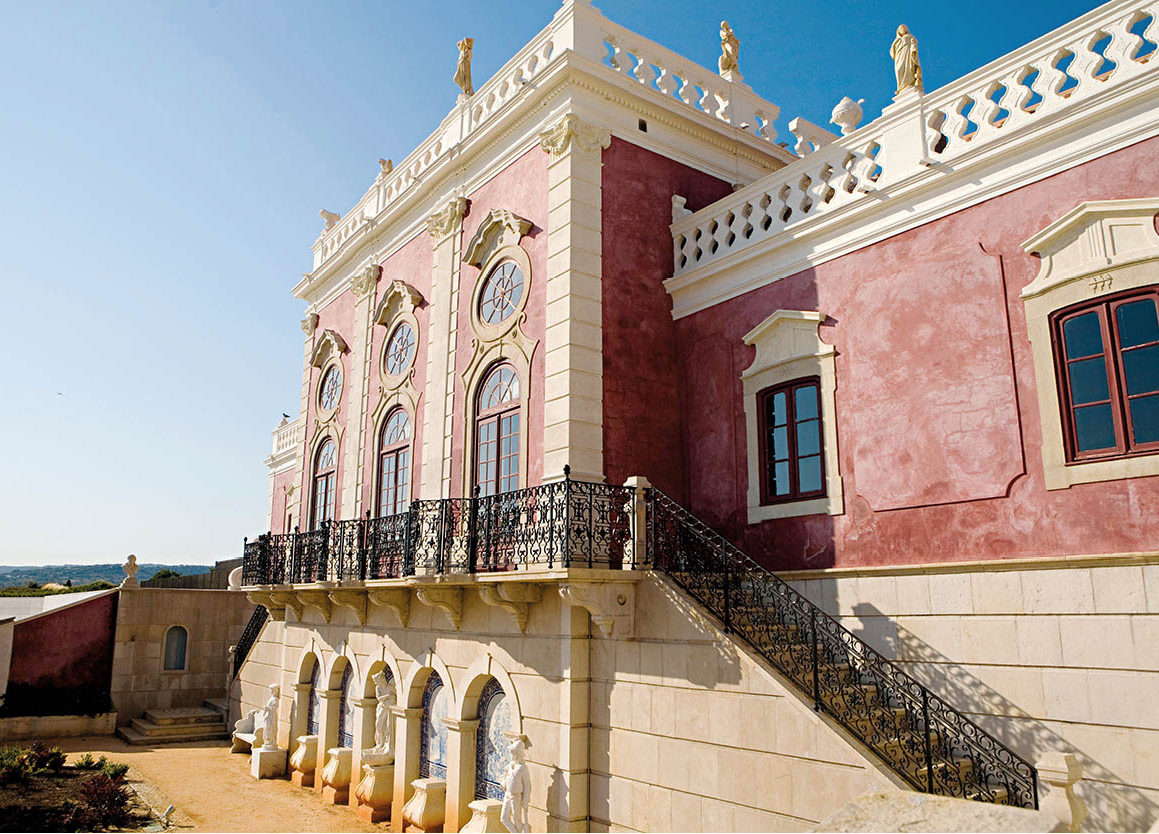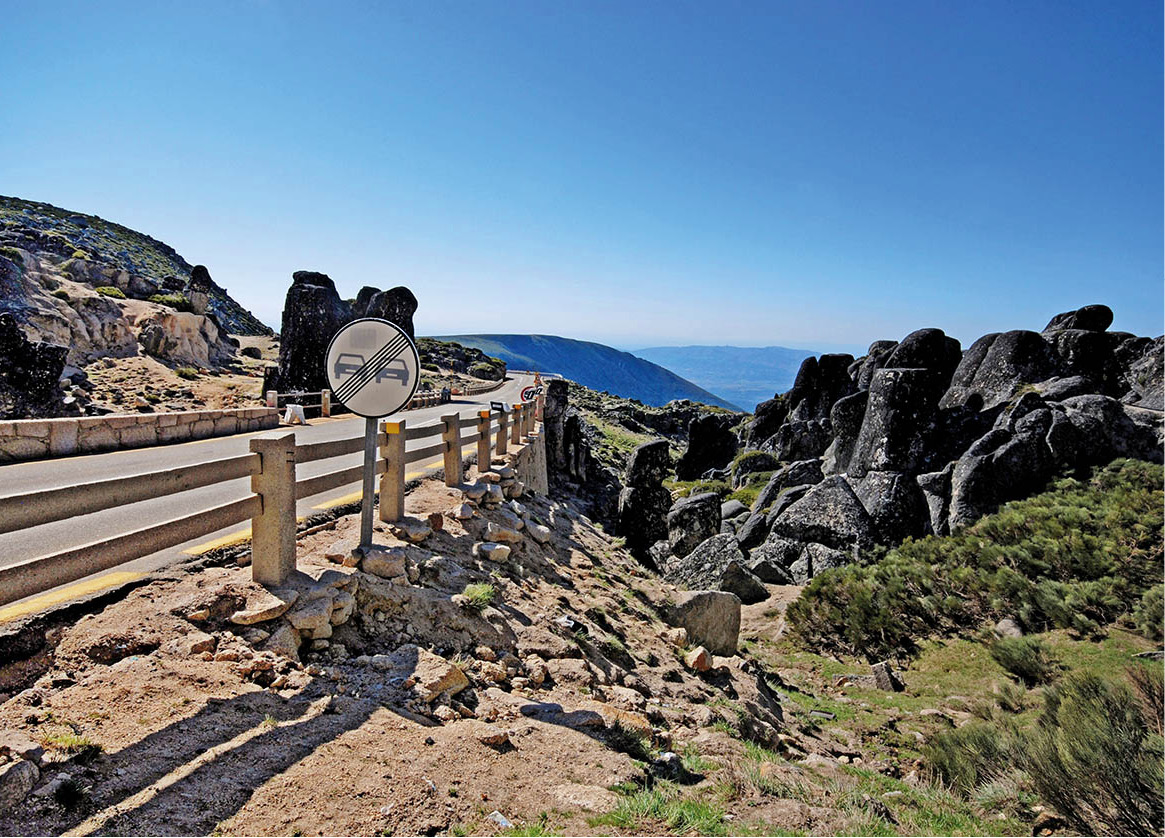Pousadas and Manor Houses
Pousadas and manor houses offer something different from ordinary hotels. Above all, they give visitors a chance to experience local life and colour, usually in extremely comfortable surroundings.
Converted castles, palaces, monasteries, quintas, manor houses, water mills: there is no other country in Europe that offers good-quality accommodation in such variety. If taking a stroll around the castle walls before retiring to a grand bedroom once used by royalty, or waking to the tinkling sound of a stream beneath a miller’s cottage sounds appealing, Portugal could be just the right place.

An elegant corridor in the Pousada dos Lóios, in Évora.
Lydia Evans/Apa Publications
Pousadas
Unlike some other accommodation, pousadas have a clear identity. They are nationwide establishments, now under the management of the Pestana hotel group. Usually they are historic buildings, national monuments or notable regional houses, and are found in both urban and rural areas throughout the country.
Architecturally and historically fascinating, pousadas have earned a reputation for quality and service. Lofty rooms and heavy stone walls do not always lend themselves to luxury – in fact, some are extremely simple – but the style of decor is always sympathetic to the character of the building. Some pousadas also provide air conditioning and a swimming pool. They pride themselves, too, on the high standard of their restaurants, which are open to non-residents, and serve dishes based on regional recipes. A relaxed and distinctly Portuguese ambience is perhaps the one thing that they all have in common. There is now a choice of more than 40 pousadas, although many offer only a limited number of rooms, some as few as six.

The Pousada Palacio de Estoi.
Lydia Evans/Apa Publications
For travellers in the lush green northwestern corner of Portugal, there is a good choice. To mention just a few: in the medieval town of Valença do Minho you will find the Pousada de Valença do Minho, São Teotónio. It sits on a high point inside the ancient walled city with a spectacular view of the Rio Minho across to Spain and the Galician mountains. It is also perfectly located for walks through the winding city streets.
Further east is the Pousada do Gerês-Caniçada, São Bento, a chalet-style building on a hill just south of the Parque Nacional Peneda-Gerês. Its floor-to-ceiling windows overlook the Caniçada Dam and a forest. It has its own pool and tennis court.
Be the king of the castle
If you fancy staying in a castle, try the Pousada do Óbidos, in the delightful old walled town of Óbidos, north of Lisbon. Built into a section of the 12th-century castle, the pousada is very small, with only nine rooms, and very popular, so advance reservations are essential. Palmela, with 26 rooms, is another castle pousada that is much in demand. Originally a fortress, it became a monastery in the 15th century and was severely damaged in the 1755 earthquake. Now the refectory is the dining room and the cloisters are used on festive occasions for gala dinners.
Manor houses
The manor house scheme, to which numerous gracious old houses belong, began in the north of the country. The scheme, run by Turihab and called Solares de Portugal, was created to conserve some of the country’s most beautiful manor houses and palaces. The owners of these magnificent homes can no longer afford the maintenance and have opened them up to tourists, who are quite often treated as guests of the family. The term “manor houses” has broadened to encompass an extremely wide range of accommodation, which is available throughout the country. Privately owned manor houses are also known as solares. Stately manor houses, elegant country homes, farmhouses and rustic cottages are all included in this one general description. They are often listed under three categories:
Casas Antigas: elegant manor houses or estates originating from the 17th and 18th centuries. Furnished according to the period, they are sometimes full of antiques and artworks.
Quintas and Herdades: both are agricultural farms, but a quinta differs in being a walled estate. Although mostly located in rural settings, some are handily situated for towns.
Casas Rústicas: usually located in the heart of villages or on farms, and often quite isolated. Their architecture has a rustic feel , but they maintain a good level of comfort and amenities.
Where to Book
Although reservations can be made directly, there is a central agency in Lisbon that handles bookings for all pousadas. There is no minimum-stay requirement. Contact Pousadas de Portugal, Rua Soares de Passos 3, Alto de Santo Amaro, 2300-314 Lisbon; tel: 218 442 001; www.pousadas.pt. For Turihab properties contact Praça da República, 4990-062 Ponte de Lima; tel: 258 741 672; www.turihab.pt or www.solaresdeportugal.pt. Several other agencies handle bookings for manor houses, including Manor Houses of Portugal, Apartado 596, 4901-908 Viana do Castelo; tel: 258 835 065; www.manorhouses.com (also for more information, click here).

Winding road in the Serra da Estrela mountains, central Portugal.
Dreamstime.com